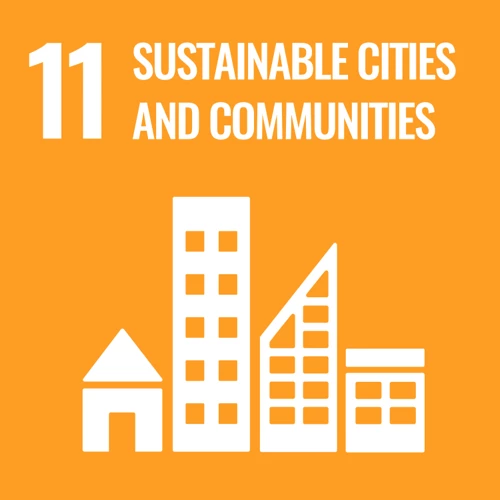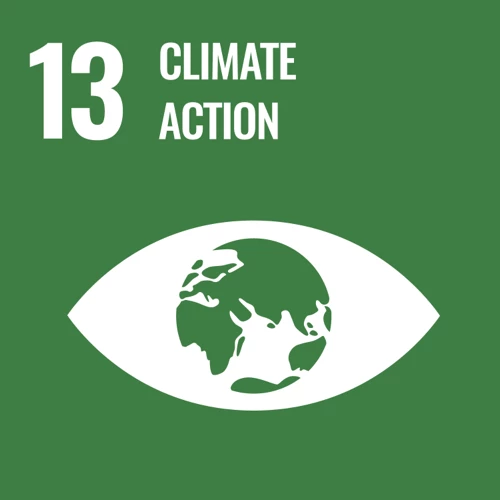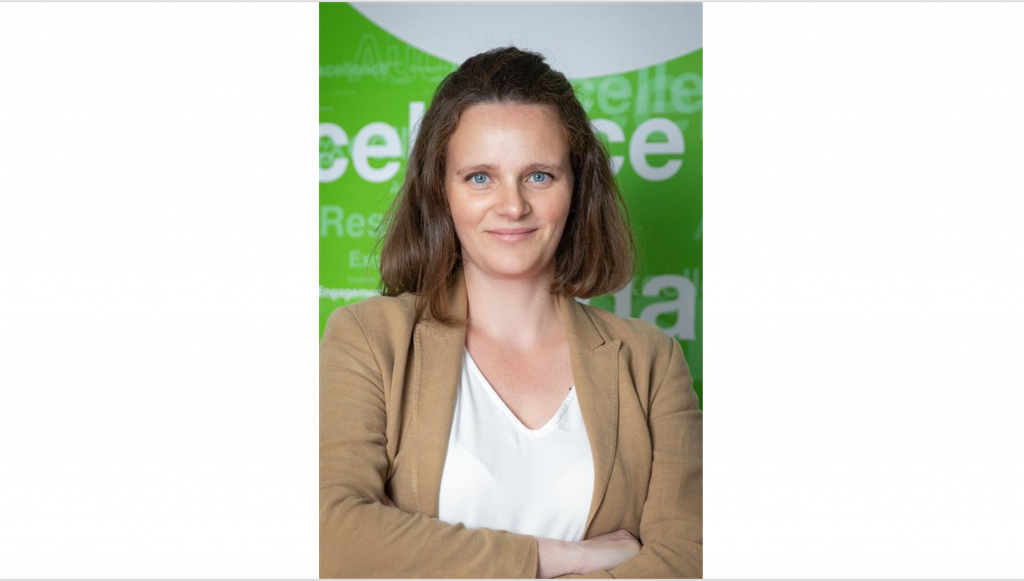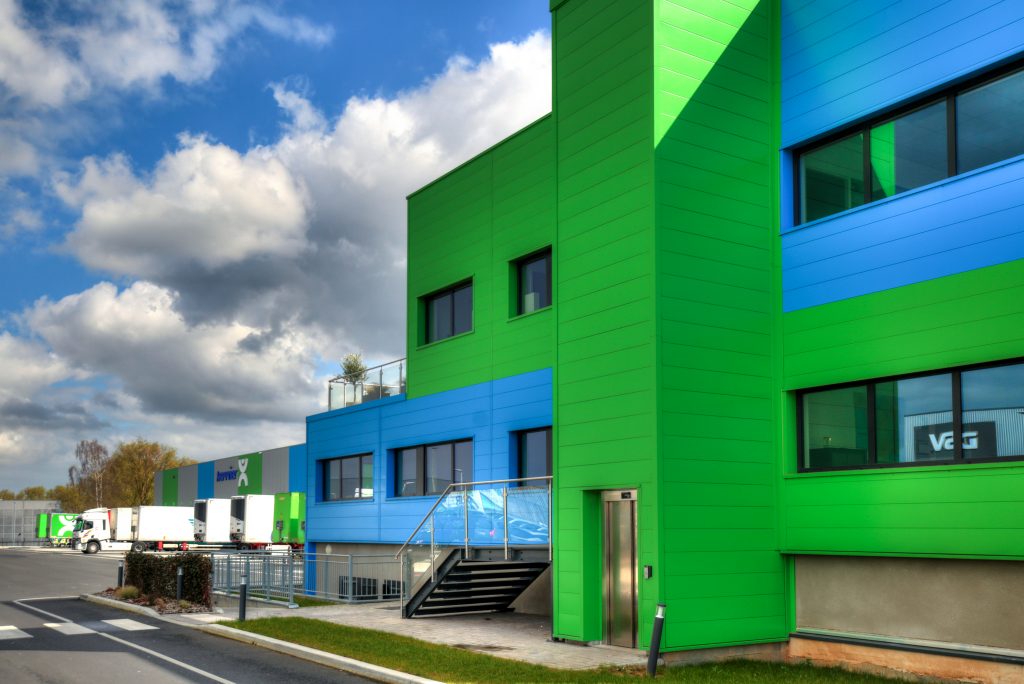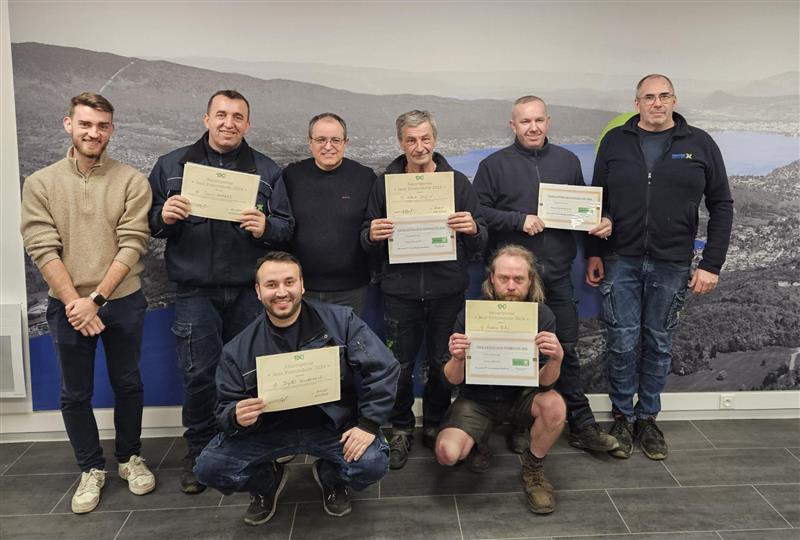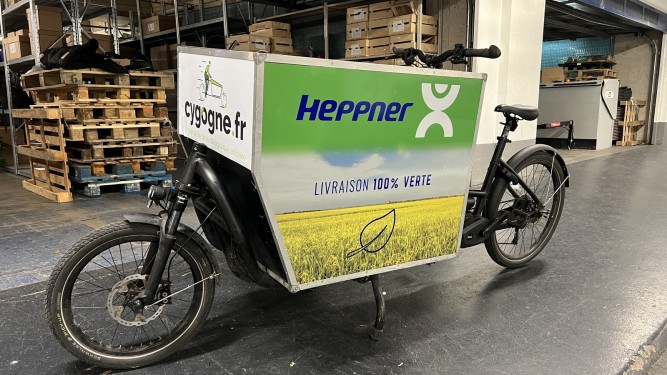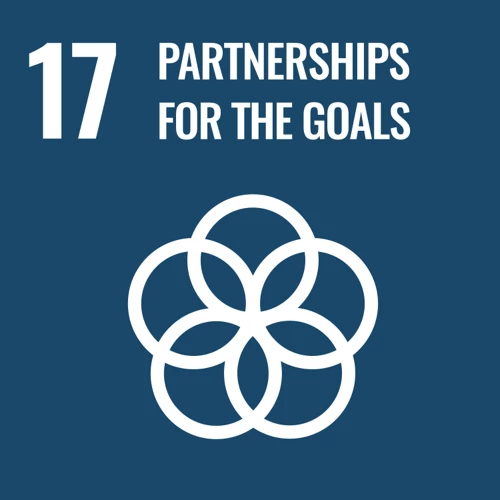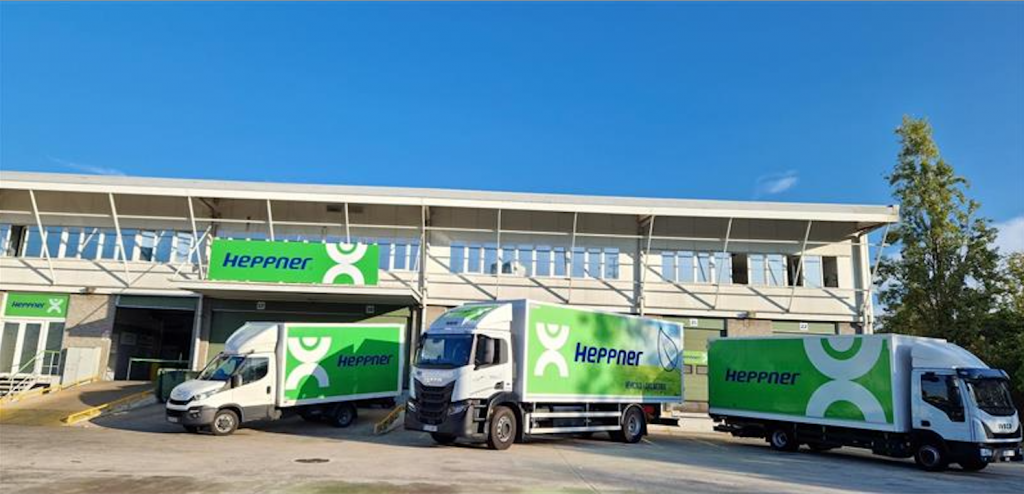Insight: What does the Energy Transition Pact consist of?
The Energy Transition Pact is a 5-year partnership between Heppner and its subcontractors designed to help them move towards low-emission fleets.
It offers support through negotiated prices, financing support and easier access to alternative solutions.
“We are extremely pleased with our partnership with Heppner. Their commitment to CSR, their transparency and their determined approach to integrating sustainable and ethical practices strengthen our confidence in their ability to meet our needs, and motivate us to continue this fruitful collaboration.”
France remains the driving force behind the Group’s energy transition
After 5 years of commitment to its Energy Transition Pact, the maximum number of low-emission vehicles at Heppner France in 2024* has reached 26%, up 3 points on 2023. For the Group as a whole, the figure now stands at 23.4%, up 6 points on 2023.
* Scope: Last mile, Heppner-owned fleet, subcontractors, local and national partners (including cycle logistics)
Focus on innovation: Heppner France x Centre Ouest Céréales
As part of the Energy Transition Pact, in 2022 Heppner began a partnership with Centre Ouest Céréales, an agricultural cooperative in the Poitou region specialising in the production of rapeseed for human consumption and animal feed, the pharmaceutical industry and the B100 biofuel. Under this tripartite agreement, Heppner provides the necessary surface area, while the subcontractor finances the installation and Centre Ouest Céréales supplies the tank. This enables subcontractors to resupply themselves with fuel whenever they need.
This initiative guarantees use of a French-grown biofuel, with controlled traceability and precisely measurable carbon impact. In fact, in 2024, this initiative accounted for the lion’s share of Heppner subcontractors’ conversion to lower-carbon alternatives.
International deployment of the Energy Transition Pact
The Heppner Group validated its international energy transition roadmap in September 2024. The programme is tailored to each country’s economic and energy particularities.
Most European countries have a less favourable energy situation than France (more carbon-intensive energy, more expensive alternatives). In view of this, the Group has chosen to couple energy transition actions on the road with energy efficiency actions in buildings with the aim of measuring the transition efforts from both viewpoints. Our ambition is to:
- Evolve the fleets toward biofuels and then converge on electric.
- Improve the energy efficiency of the buildings and facilities at the sites with LED re-lamping and transition the materials handling vehicles to electric power, in particular.
- Reduce energy consumption on the road by promoting and monitoring eco-driving in a way that is both fun and cost-effective.
FOCUS ON IT: Heppner signs the Institut du Numérique Responsable's Sustainable IT Charter
The Sustainable IT Charter aims to reduce the environmental and social impact of digital technology, while promoting its ethical and sustainable use. Heppner’s signature of the Charter in 2024 marks a step forward in the actions undertaken by the company since 2022 to measure digital technology’s energy impact and reduce its material impact.
The Charter’s main goals:
- Reduce environmental impact: by extending the hardware’s service life and using renewable energy sources.
- Inclusion and accessibility: develop digital services that are accessible to all, and integrate social and environmental criteria into purchasing processes.
- Ethical and responsible practices: reasonable use of data, compliance with the GDPR, diversity in IT recruitment, management of artificial intelligence.
- Transparency and measurement of impacts: performance monitoring, collaboration to design services aligned with real needs.
- Innovation and commitment: foster social innovation, mobilise stakeholders and encourage responsible behaviour for sustainable IT.

